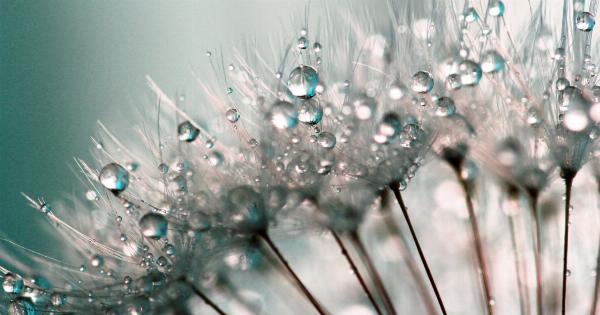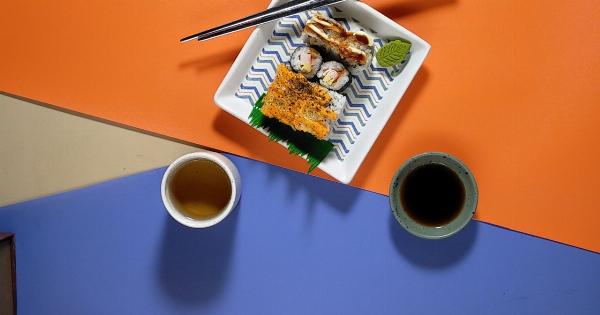During pregnancy, it’s crucial to pay careful attention to what you consume to ensure the healthy development of your baby.
Many expectant mothers wonder whether they can continue enjoying their favorite teas or if they need to eliminate tea from their diets altogether. The good news is that there are still plenty of delicious and safe teas you can enjoy while pregnant.
In this article, we will explore the various types of tea you can drink during pregnancy, their potential benefits, and any risks you should be aware of.
Caffeine-Free Herbal Teas for Pregnancy
One of the most important considerations when choosing tea during pregnancy is caffeine content.
High levels of caffeine can have adverse effects on the developing baby, so it’s best to avoid teas that contain caffeine or limit your consumption of caffeinated beverages. However, there are numerous caffeine-free herbal teas available that offer various health benefits:.
1. Ginger Tea
Ginger tea is a popular choice for pregnant women as it helps relieve nausea and morning sickness. It has also been found to reduce muscle pain and inflammation.
2. Peppermint Tea
Peppermint tea is known for its soothing properties, providing relief from bloating, indigestion, and nausea. However, it’s essential to consume peppermint tea in moderation, as excessive intake can lead to heartburn.
3. Chamomile Tea
Chamomile tea has calming effects, making it an excellent choice for pregnant women dealing with sleep disturbances or anxiety. It may also help with indigestion and promote better digestion.
4. Lemon Balm Tea
Lemon balm tea has a pleasant citrus flavor and offers relaxation and stress relief. It can also assist in relieving digestive discomfort and promote a sense of calmness.
5. Rooibos Tea
Rooibos tea is a caffeine-free herbal tea rich in antioxidants. It is known for its potential to improve heart health, support digestion, and provide relief from allergies and asthma.
6. Nettle Tea
Nettle tea is packed with nutrients like iron and calcium and can help alleviate pregnancy-related leg cramps.
However, it’s important to consume nettle tea in moderation and consult with your healthcare provider before incorporating it into your routine.
7. Hibiscus Tea
Hibiscus tea is caffeine-free and rich in vitamin C. It offers a refreshing flavor and may help regulate blood pressure. However, it’s advised to limit the intake of this tea during pregnancy as excessive consumption may affect estrogen levels.
8. Dandelion Leaf Tea
Dandelion leaf tea is believed to support digestion and kidney health, making it a suitable choice for pregnant women. However, it’s recommended to consult with your healthcare provider before adding dandelion tea to your routine.
Types of Tea to Avoid During Pregnancy
While there are numerous safe teas to enjoy during pregnancy, it’s equally important to be cautious and avoid certain types of tea that may pose potential risks to the baby’s health:.
1. Caffeinated Tea
Teas that contain caffeine, such as black tea, green tea, and white tea, should be consumed in moderation or avoided entirely during pregnancy. High levels of caffeine have been associated with increased risks of miscarriage and low birth weight.
2. Herbal Teas with Medicinal Properties
Although herbal teas are generally safe for pregnancy, it’s important to avoid teas that have potent medicinal properties and are not recommended during pregnancy.
For example, teas like sage, rosemary, and parsley tea have been linked to potential complications and should be avoided.
3. Herbal Teas with Stimulating Effects
Herbal teas known for their stimulating effects, such as ginseng tea, should be avoided during pregnancy. These teas can potentially interfere with hormone levels or even stimulate contractions.
4. Herbal Teas with Unknown Effects
It’s best to avoid herbal teas with limited research and unknown effects during pregnancy. While herbal teas like lavender or passionflower tea might have calming properties, their safety during pregnancy has not been thoroughly studied.
Consult with Your Healthcare Provider
It’s vital to remember that every pregnancy is unique, and individual circumstances may differ. Therefore, it’s always recommended to consult with your healthcare provider before incorporating any new teas into your routine during pregnancy.
They can provide personalized guidance based on your health history and any potential risks associated with specific teas.
Conclusion
While pregnancy may bring about certain dietary restrictions, it doesn’t mean you have to give up the pleasure of sipping a warm cup of tea.
Caffeine-free herbal teas, such as ginger, peppermint, chamomile, lemon balm, rooibos, nettle, hibiscus, and dandelion leaf tea, offer delicious flavors and potential health benefits. However, it’s crucial to avoid teas containing caffeine and those with strong medicinal properties or stimulating effects. Prioritize safety and discuss any concerns with your healthcare provider.
Enjoy the journey of pregnancy while savoring the comforting and nourishing experience of tea in moderation.































